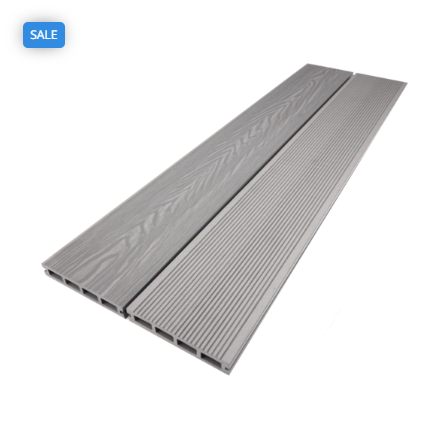Why Phenolic Film Faced Plywood Is the Go-To Choice for UK Construction Projects
In the ever-evolving world of construction, materials need to do more than just serve a purpose—they must perform, endure, and provide long-term value. That’s where Phenolic Film Faced Plywood steps in as a top-tier solution, especially for construction professionals across the UK.
Whether you're working on large-scale commercial builds, formwork for concrete, or creating durable platforms, this high-performance plywood variant offers unmatched resilience and versatility. Let’s explore why Phenolic Film Faced Plywood has become a staple in the UK construction scene—and how it compares with other sheet materials like flexible plywood sheets.
What Is Phenolic Film Faced Plywood?
Phenolic Film Faced Plywood is a type of engineered wood sheet that’s coated with a smooth, waterproof phenolic resin film on both sides. This film layer provides a tough, protective surface that resists moisture, abrasion, and chemical damage. Beneath the film, multiple layers of high-quality hardwood veneer are bonded together with waterproof adhesives, making the board exceptionally strong and dimensionally stable.
It’s commonly used in applications such as:
-
Concrete formwork
-
Flooring in commercial and industrial buildings
-
Truck and trailer linings
-
Scaffolding platforms
-
Outdoor structures
Key Benefits for UK Construction Projects
1. Superior Durability
UK construction sites face everything from wet winters to demanding jobsite conditions. Phenolic Film Faced Plywood holds up exceptionally well thanks to its water-resistant and wear-resistant surface. Unlike standard plywood, it doesn't delaminate, warp, or degrade easily, making it ideal for high-impact environments.
2. Reusable and Cost-Effective
Contractors love this material because it offers multiple uses without compromising performance. In concrete formwork, for example, phenolic plywood can be reused many times over, reducing material costs and waste. Its easy-to-clean surface also minimises maintenance between uses.
3. Excellent Load-Bearing Capacity
This plywood is manufactured using dense hardwood veneers and WBP (Weather and Boil Proof) glue. As a result, it offers exceptional load-bearing capacity—ideal for heavy-duty flooring or platform construction. From mezzanine floors to industrial scaffolding, its structural strength is a major plus.
4. Waterproof and Weather Resistant
One of the standout features of phenolic plywood is its waterproof phenolic coating. In the UK's unpredictable climate, where rain and dampness can pose major challenges on site, having a moisture-resistant board is critical. Phenolic Film Faced Plywood keeps its integrity even when exposed to rain, making it a favourite for exterior and temporary outdoor structures.
5. Smooth Finish for Concrete Formwork
When used for shuttering and formwork, the smooth surface of phenolic plywood ensures a clean, polished concrete finish. It prevents the concrete from sticking, speeds up the demoulding process, and leaves minimal residue—saving time and effort on the job.
How It Compares: Phenolic Plywood vs Flexible Plywood Sheets
While Phenolic Film Faced Plywood is known for its rigidity and strength, there are other plywood variants like flexible plywood sheets that serve different purposes in construction and interior design.
Flexible plywood sheets are thin, bendable boards that can be curved to form rounded structures such as arches, columns, or bespoke furniture pieces. They’re often used in:
-
Decorative wall and ceiling panels
-
Curved cabinetry
-
Exhibition displays
-
Theatre stage sets
Though not suitable for load-bearing or external use, flexible plywood is a go-to material for creative and design-focused projects where shape and form are more important than structural strength. In essence, it complements rather than competes with phenolic plywood by addressing different construction needs.
Together, these plywood types offer a full spectrum of solutions—from heavy-duty performance in harsh environments to aesthetic flexibility for custom interiors.
Common Sizes and Thicknesses Available in the UK
In the UK, Phenolic Film Faced Plywood is typically available in standard sheet sizes of 2440mm x 1220mm, with thicknesses ranging from 12mm to 25mm, depending on the structural requirements of the project. Thicker variants are often used for flooring and platforms, while thinner ones are suitable for wall lining and concrete moulding.
Sustainability and Sourcing
With growing focus on eco-friendly building materials, many suppliers now offer phenolic plywood sourced from sustainably managed forests. Check for FSC (Forest Stewardship Council) certification when purchasing, and choose reputable building material suppliers who offer transparency and consistent quality.
Final Thoughts
From its rugged surface to its remarkable resilience, Phenolic Film Faced Plywood is a material built to perform. Its widespread use across the UK construction industry is a testament to its reliability and cost-effectiveness. Whether you're pouring concrete, building scaffold platforms, or lining trailers, this plywood delivers unmatched value.
And for those seeking versatility in design, pairing this board with flexible plywood sheets can open doors to even more creative, functional builds—proving once again that plywood, in all its forms, continues to shape the future of UK construction.


Comments
Post a Comment